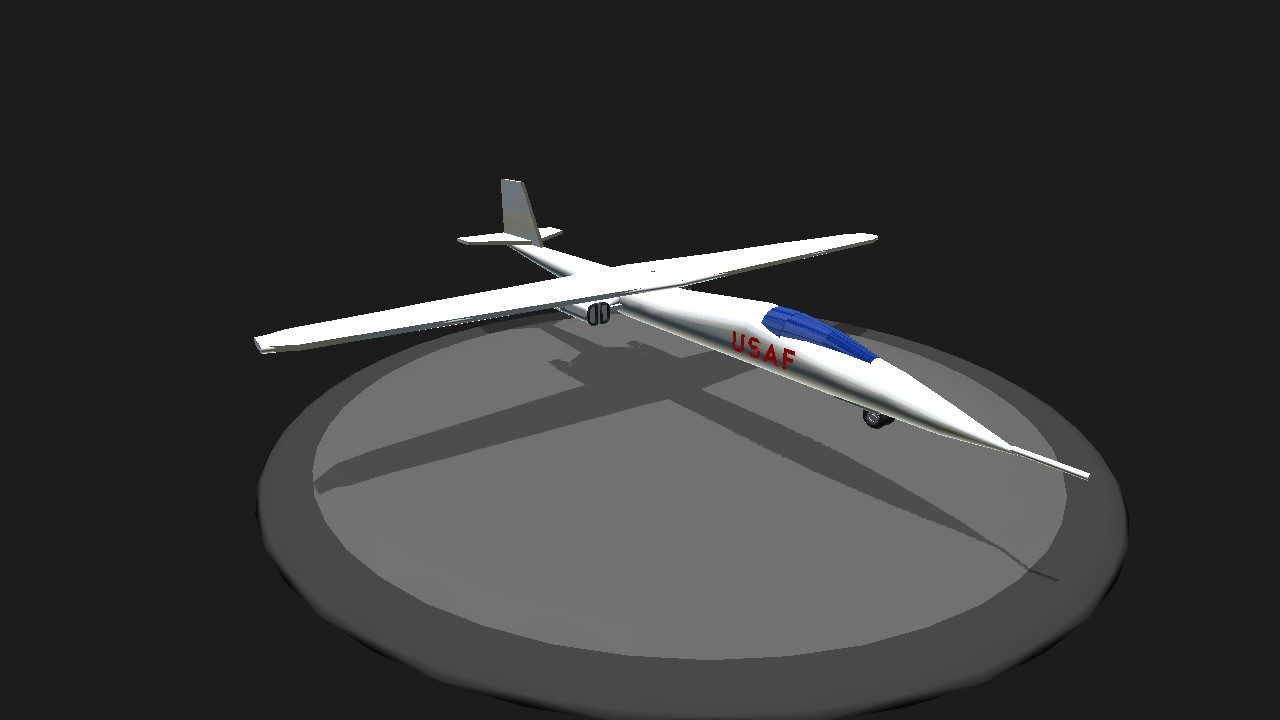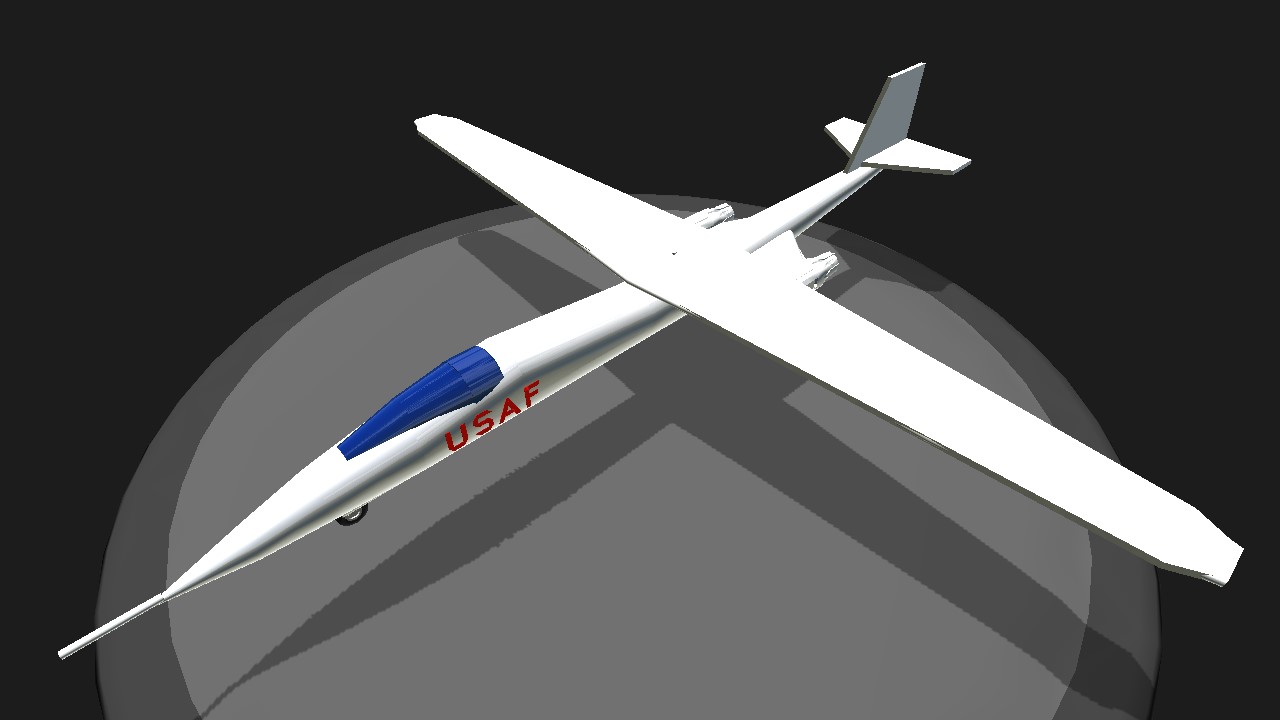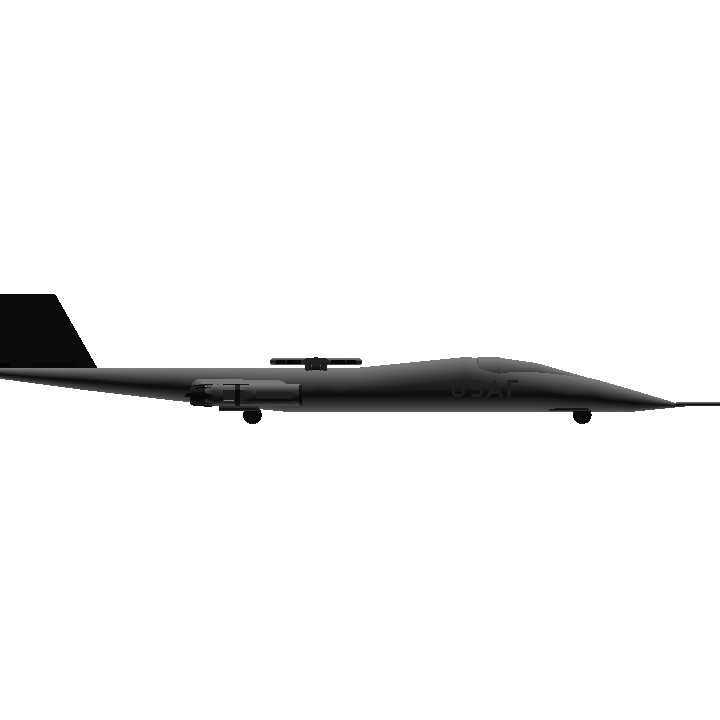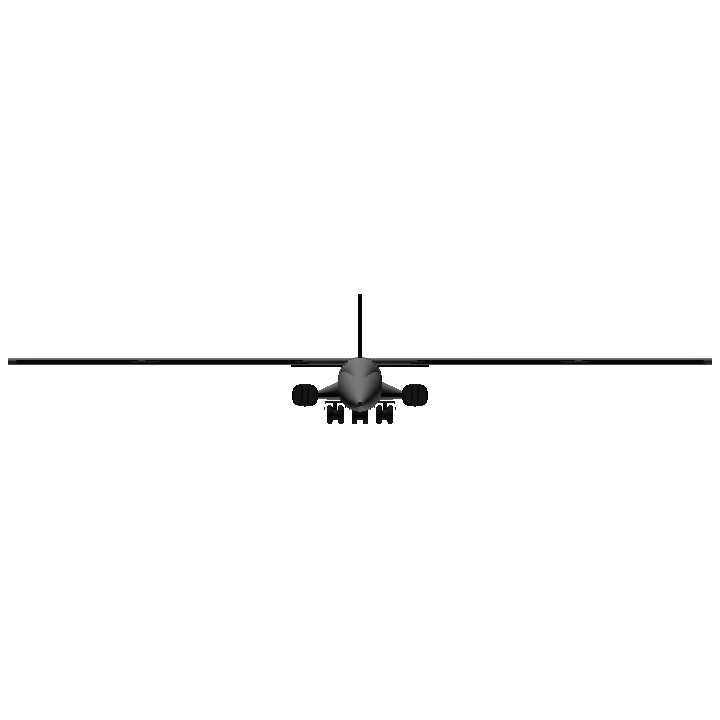The NASA AD-1 was an experimental aircraft and flight program conducted by NASA in order to test th viability an obliquly pivoting wing layout. The aircraft, which was built on a low cost budget, was capabe of a 60 degree rotation of the primary wing, and flew at just over 170 mph. This one flies at about 800 mph under ideal conditions, and is capable of a wing rotation of ~50 degrees before the subsequent loss of stability renders the plane unflyable. ???
Specifications
General Characteristics
- Successors 1 airplane(s) +7 bonus
- Created On Mac
- Wingspan 52.5ft (16.0m)
- Length 53.7ft (16.4m)
- Height 9.6ft (2.9m)
- Empty Weight 3,417lbs (1,550kg)
- Loaded Weight 9,892lbs (4,487kg)
Performance
- Power/Weight Ratio 0.681
- Wing Loading 27.5lbs/ft2 (134.2kg/m2)
- Wing Area 359.9ft2 (33.4m2)
- Drag Points 4169
Parts
- Number of Parts 86
- Control Surfaces 4
- Performance Cost 363







I decided to do a modification on this...I figure why only one wing when NASA could try two! I'll post it shortly. @Squageheimer
@JS311 Oh don't worry I will. Thanks again for the troubleshooting :)
I'm not positively sure, either. I'd just roll with it (pardon the pun) and have fun with it! It's most likely because of the offset of the center of lift when the wing is skewed like that. Keep making those planes, though! 😄
@JS311 Tried lengthening the fuselage in order to stop the primary wing from hitting the fuselage and even after the wing no longer made contact the plane is still unstable. In addition there is quite a noticeable clockwise roll tendency from 20 degrees on. Im stumped. Your guess is as good as mine! Any ideas?
@JS311 wow you're quite observant! I guess ill have to fix it. Thank you!
Really good stuff, and not that difficult to control with the wing roatated. I did see that if the slider was brought all the way up or down, the wing assembly hits the part of the fuselage where it gently rises up to the cockpit canopy, causing one half of the wing to change its angle of attack. That looks like where it really becomes unstable. Just prior to that point, though, it's pretty stable with some aileron input...and really fast! Hope this helps, and safe flying! 😁👍